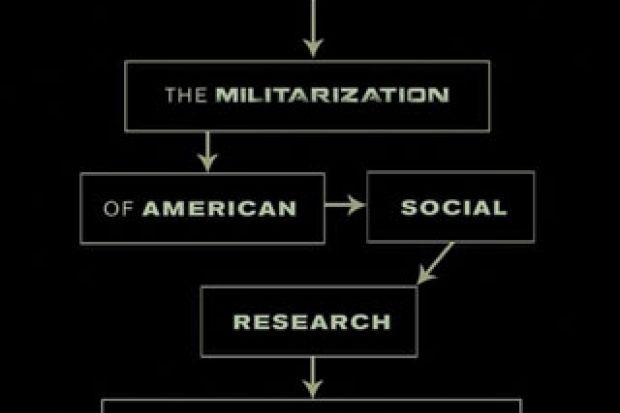Unsettling comparisons of US military tactics in the Cold War and this millennium’s War on Terror abound. Be it in the clandestine operations of CIA operatives, counterinsurgency campaigns or the general hubris of the military-industrial complex, the similarities are remarkable. Of course, any comparison is anachronistic, but as US secretary of defence Robert McNamara would observe some 20 years after the Vietnam War, there are certain lessons to be learned from conflict. One such, he contended, was that rationality will not always solve problems. It is with that lesson in mind that Joy Rohde’s Armed With Expertise considers the psychologists, anthropologists, political scientists and sociologists who worked as “service intellectuals” for the Department of Defense. Despite the lessons of the Cold War, particularly the failures of Vietnam, the US has gone on to employ an equivalent group of academics for the same purpose in its most recent wars in Iraq and Afghanistan.
The bulk of Rohde’s succinct book investigates the social scientists who informed the Pentagon from the 1950s to the 1970s. The contemporary context frames the narrative and illustrates the enduring utility of academics in developing military strategy. In the 1950s, the prevailing fear of communism and cultural consensus led many academics to believe that their work would expand American-styled “freedom” in the Third World. Rohde profiles three “Sorons” – the eerie nickname of academics enlisted into the DoD’s Special Operations Research Office, or Soro – to unfold similarities and differences among intellectuals. It works. The biographies demonstrate that some social scientists believed either that state patronage did not corrode academic freedom, or that the righteousness of the containment policy was entirely ethical and thereby in line with their academic pursuits. Other scholars recognised that government patronage would distort academic neutrality, but carried on armed with the rationalisation that all expert analysis was subjective.
That ethical dilemma reached a climax with Project Camelot, a research venture designed to uncover the causes of communist revolution. When Camelot’s objective was leaked, it caused a minor diplomatic spat in Chile, the proposed case study for the Pentagon’s social scientists, and McNamara shut down the project in 1965. The affair marked an important turning point for several reasons. First, it pointed to the growing input of the DoD in diplomatic affairs, normally the purview of the State Department. Second, Camelot represented the gradual subcontracting of social scientific research in order to mask the patronage of the state, while hardly diminishing its looming influence. Third, the leak prompted the DoD to increase its classification of research projects and intensify secrecy. The fiasco coincided with the escalating Vietnam War; in combination, these events exacerbated scholars’ credibility gap in the eyes of the public. The corruption of academics mirrored the militarisation of the nation.
A backlash followed. Universities began a process of insulating academics from government patronage. Legislators on Capitol Hill held public hearings and cut DoD spending on social research, and the student activists who protested against the war also protested against the seemingly compromised academics at their institutions. Faculties imploded as departments fought over the meaning of academic freedom. Ultimately, the Pentagon’s funding no longer had the same financial appeal to university trustees. Even so, the backlash did not completely sever government patronage from the academy, as, from the ashes of defunct thinktanks, a new generation of service intellectuals was born.
In a useful corrective to the reflexive view of a left-leaning ivory tower, Rohde offers stimulating insight into the complicated lives and ideological persuasions at play. And in an age when research funding has never seemed more important to academics’ career prospects, Armed With Expertise offers a historical lesson worth heeding.
Armed with Expertise: The Militarization of American Social Research during the Cold War
By Joy Rohde
Cornell University Press, 224pp, £19.95
ISBN 9780801449673
Published 17 September 2013
Register to continue
Why register?
- Registration is free and only takes a moment
- Once registered, you can read 3 articles a month
- Sign up for our newsletter
Subscribe
Or subscribe for unlimited access to:
- Unlimited access to news, views, insights & reviews
- Digital editions
- Digital access to THE’s university and college rankings analysis
Already registered or a current subscriber?





